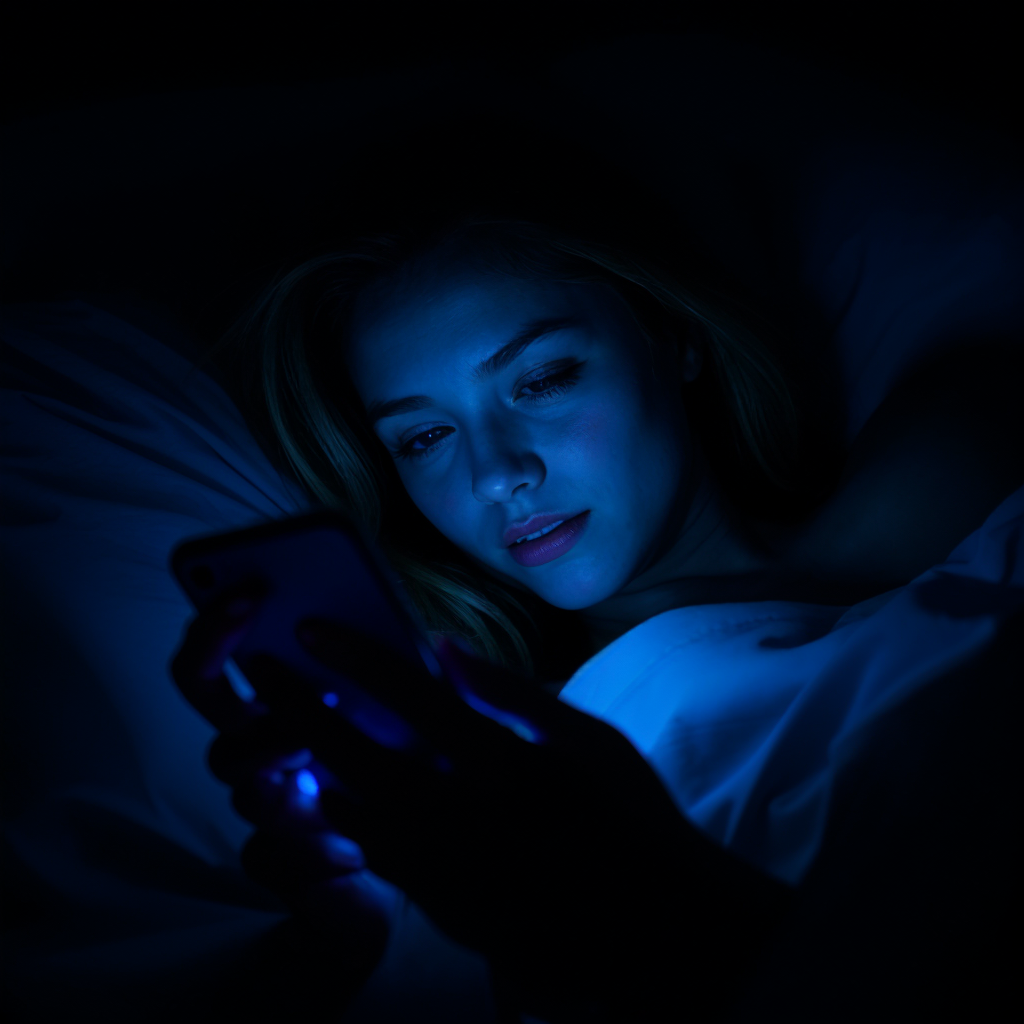In recent years, there has been growing concern about the potential impact of blue light exposure on our health, particularly when it comes to sleep quality and circadian rhythms. As technology continues to advance, our exposure to blue light from digital screens, artificial lighting, and other sources has steadily increased. In this article, we will explore the effects of blue light on various aspects of our health, including sleep, circadian rhythms, and hormones, as well as the protective role of lutein in eye health.
What is Blue Light?
Blue light is a specific portion of the visible light spectrum that has shorter wavelengths (approximately 380-500 nanometers) and higher energy. While blue light is present in natural sunlight, it is also emitted by artificial sources such as LED and fluorescent lighting, as well as digital screens like smartphones, tablets, computers, and televisions.
Blue Light and Circadian Rhythms
The human body has an internal biological clock known as the circadian rhythm, which plays a crucial role in regulating sleep-wake cycles and various physiological processes. Our circadian rhythms are highly sensitive to light, particularly blue light. During the daytime, blue light exposure helps to keep us alert and awake, while reduced light exposure in the evening signals our bodies to prepare for sleep.
However, excessive exposure to blue light, particularly during the evening hours, can disrupt our circadian rhythms, leading to difficulties falling asleep, reduced sleep quality, and increased daytime fatigue. Studies have found that using electronic devices emitting blue light before bedtime can suppress the production of melatonin, a hormone that promotes sleepiness and helps to regulate sleep cycles.
Blue Light and Sleep
A growing body of research has demonstrated that excessive blue light exposure, especially during the hours leading up to bedtime, can have a detrimental effect on sleep quality and quantity. Blue light suppresses the production of melatonin, which can make it more challenging to fall asleep and achieve a restful night's sleep. Sleep deprivation has been linked to a variety of health issues, including impaired cognitive function, increased risk of accidents, mood disorders, and weakened immune function.
Blue Light and Hormones
Beyond its impact on melatonin production, blue light exposure has been found to affect other hormones as well. For instance, some studies suggest that blue light can impact cortisol levels, a hormone associated with stress. High cortisol levels can contribute to weight gain, high blood pressure, and other health issues.
Blue light may also influence insulin resistance, a condition in which the body's cells do not respond effectively to insulin, leading to elevated blood sugar levels. Some research indicates that blue light exposure may disrupt metabolic processes and increase the risk of developing type 2 diabetes.
The Protective Role of Lutein
Lutein is a carotenoid found in various fruits and vegetables, particularly green leafy vegetables such as spinach, kale, and broccoli. It is also present in egg yolks. Lutein is known for its beneficial effects on eye health, particularly its ability to protect against age-related macular degeneration and cataracts. Recent research suggests that lutein may also play a role in reducing the negative effects of blue light on the eyes.
Lutein has been found to accumulate in the macula, an area of the retina responsible for central vision, where it acts as a natural filter, protecting the eye from blue light damage. Supplementing with lutein or increasing your dietary intake of lutein-rich foods may help to protect your eyes from blue light exposure and support overall eye health.
Strategies for Reducing Blue Light Exposure
While it may be challenging to completely avoid blue light in today's technology-driven world, there are several steps you can take to minimize your exposure and protect your health:
-
Limit screen time, particularly in the hours leading up to bedtime.
-
Consider using blue light-blocking glasses or screen filters, especially when using digital devices in the evening.
-
Use dim, warm-toned lighting in your home during the evening hours.
-
Create a technology-free bedroom environment to promote healthy sleep habits.
-
Incorporate lutein-rich foods or supplements into your diet to support eye health and reduce the negative effects of blue light exposure.
In conclusion, excessive blue light exposure can significantly impact our overall health, sleep quality, circadian rhythms, and hormones. By understanding the potential risks and adopting strategies to minimize blue light exposure, we can take steps to protect our well-being in an increasingly digital world.



